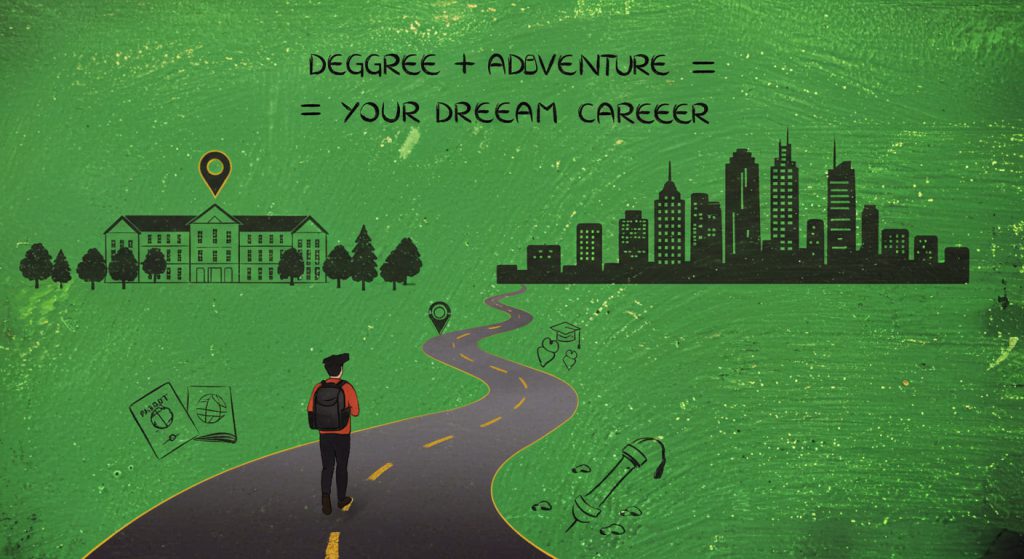Obtaining a degree from a university is seen as having many benefits. Getting one is thought to improve one’s economic prospects, career opportunities, and even open doors to middle class living. However, it serves more purposes than just a verification. After all, institutions of higher learning seek to foster critical thinking skills in students, helping them evaluate multidisciplinary issues like current news or global events that can often feel overwhelming.
Such a degree fosters the ability to analyse and think beyond the surface, equipping graduates to participate meaningfully in any conversation, be it politics or workplace problem solving. A German example showcases the practicality behind holding a degree. Universities there have over quadrupled their degree offerings from 300 in the year 2000 to a whopping 17,000 today. This growth comes from the creation of specialized positions such as robotics and systematic automatic engineering. As a result, students are leave with the ability to tailor their education to meet their skill set alongside pre-existing market demands.
Navigating a Complicated World
The world can seem disorganized politically, socially, and environmentally. Higher education provides you with the frameworks you need to traverse through the chaos. Learning is not simply about information retention, but is rather the ability to draw useful insights. Who is the real author behind a particular news story? What is the relationship between different global systems? As you study different disciplines, you begin to learn how to identify patterns and know how to ask useful questions. This kind of learning is not just scholarly. It is a critical life skill. From dealing with group projects to deciding when to vote in elections, you will learn how to deal with a wide range of situations and be able to contribute towards a better democracy.
Adjusting to an Ever-Changing Job Market
Let’s delve into jobs. Most employers want to see graduates who are flexible and able to shift with the rapidly changing needs of different sectors. Higher education helps you attain this flexibility with specialized programs that cater to different market requirements. Applied sciences and mechatronics may sound a bit scary, but they are meant to get you ready for some of the most thrilling careers out there. In addition, the communication and critical thinking skills taught at university equip you to become a candidate who can adapt quickly to change. Imagine being able to walk confidently into an interview, knowing that you stand out from the competition because of the skills and experiences you will get from a mechatronics or applied sciences degree.
Change Your Worldview with The Magic of Studying Abroad
Strawberries and cream remind me of education abroad – a cherry on top of the cake. Education abroad is more than just an opportunity to learn a new language; it provides opportunities to experiences the things people do and their way of life. From trying different cuisines to learning local etiquette to simply the laughable missteps, the roasted misadventures, studying abroad develops open-mindedness. These are the attributes that help you in practically every aspect of life, be it diverse work settings such as global companies or diverse social settings.

Growth Crash Courses A Result of Cultural Immersion
Trying to open a foreign bank account offers a multifaceted experience that transforms a mundane task into a thrilling activity. The struggle with bureaucracy is finely intricately intertwined with culture. These are the lessons that embody patience, empathy, resilience and resourcefulness. The vibrant chaos of Mexico is perfectly juxtaposed to Germany’s orderly bus stops. You will come back with an entirely new viewpoint fostered by awe-inspiring tales that serve curiosity. Ellen Langer, known to the world as the ‘mother of mindfulness’ best portrays the essence when she stated that the performs value differ much more than the speech.
The Balance of Educational Indulgence and Self-Drive
Studying abroad usually comes with having to shift to new academic systems. With Germans, for example, they do not provide you with textbooks: you are expected to take charge over your learning. You don’t have need to attend classes because you cannot miss anything important, you get assigned little to no homework, and it is up to you and your self-starting spirit. Sounds challenging? It is actually great. You develop your time management, goal-setting, and self-motivation skills all of which are very useful in contemporary workplaces. Most International students tend to return to their countries very self-motivated, very willing to take on challenges head on.
Highlighting Skills Needed Beyond the Classroom
The OECD rightfully pointed out in 2009, and looking back now, it does not strike me as divine. So termed soft-skill thinking as well as communication, and cross-cultural teamwork are essential to every employer regardless of the field of specialization chosen by the graduate. Studying abroad test all of these to the absolute maximum. Imagine having to take part in a class group project assigned to students from different cultures: each one depicts their own country’s working traditions. The French group will most likely go straight ahead to do the work with someone taking charge, while the Germans will start drafting their elaborate schematics. Dealing with these issues allows you to get hired and keeps you employed because this is pure professionalism.
Key Takeaways
- A degree builds critical thinking, helping you navigate a complex world with confidence.
- Higher education aligns with market needs, preparing you for specialized, in-demand careers.
- Studying abroad boosts cultural fluency, making you adaptable and empathetic.
- New academic systems foster self-motivation, equipping you with lifelong skills.
- Transferable skills like teamwork and communication set you apart in the job market.
Your Journey, Your Way
Higher education and studying abroad aren’t one-size-fits-all. Some of you might dive into a niche degree, while others explore a semester overseas. That’s the beauty of it—you get to shape the experience to fit your goals. These paths don’t just prepare you for a job; they help you grow into someone who embraces challenges, respects differences, and sees the world’s complexity as an opportunity. So, what’s your next step? Maybe it’s researching a study abroad program or picking a major that sparks your curiosity. Whatever you choose, take that first step with confidence—you’re building a brighter, bolder future.
